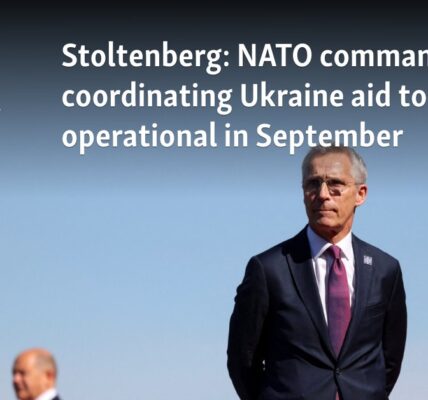Ukrainian leader Türk urges Russia to end hostilities and work towards a fair resolution for lasting peace.

Since the invasion began, the UN human rights office (OHCHR) has closely observed the situation. As of December 4, there have been more than 10,000 civilian fatalities, including 560 children. 18,500 civilians have also been reported as injured, though the actual numbers are believed to be much higher due to challenges in verifying them.
“I sympathize with the Ukrainian people, who have the right to peace and deserve to live in peace according to the principles of the UN Charter and international law. However, I am concerned that the ongoing and entrenched conflict will have lasting effects on their lives and human rights for years to come,” stated the High Commissioner.
The HRMMU has carefully recorded the ongoing crisis in Ukraine using a well-established approach. Mr. Türk emphasized the results, exposing severe infringements on global human rights and significant violations of international humanitarian laws, mostly by Russian troops.
Report’s findings
From August 1st to November 30th, a total of 2,440 instances of civilian deaths and injuries were recorded.
The information indicated a 25 percent drop in comparison to the last four months and a 46 percent decrease compared to the same time frame in 2022. This can be attributed to various factors including stabilizing frontline operations, evacuations of civilians, and improved air defense systems.
The majority of the fatalities occurred in Donetsk, Kharkiv, Kherson, and Zaporizhzhia, which are close to the frontlines. A significant portion of the victims were elderly individuals who were either unwilling or unable to move to a different location.
86% of civilian casualties took place in territory under Ukraine’s control, with the remaining 14% occurring in areas controlled by Russia.
Missile threat
Despite being removed from the frontlines, safety is not guaranteed as the Russian armed forces continuously launch missile attacks at densely populated residential areas. In the recent days, over 50 people were injured and multiple buildings were damaged in missile attacks on Kyiv.
Mr. Türk stated that individuals throughout the nation do not feel secure. He also mentioned that assaults have occurred on grain storage and transportation facilities, which are considered protected civilian objects according to international humanitarian law.
Since February 2022, over 1,300 education and health facilities have been impacted by damage or destruction. In the past four months alone, there have been over 100 reported incidents. Lives are still in danger due to the presence of mines and explosive materials.
Human rights violations
Reports of arbitrary arrests, enforced disappearance, and widespread mistreatment by Russian military forces persist in territories occupied by Russia.
Although they were unable to enter Russian detention centers, OHCHR emphasized that there were at least 100 civilian fatalities due to arbitrary detention, detention without communication, and forced disappearance.
The report discusses a detailed investigation into six recent incidents where Russian soldiers killed civilians in occupied areas.
“Mr. Türk reported that the Russian government has detained two Russian military members for their involvement in the murder of a family of nine, including two young children, in Volnovakha, Donetsk region. There are also reports that a separate investigation has been launched into another verified incident in which a couple was killed in Maly Kopani, Kherson region.”
He also pointed out that according to international law, the occupying country is obligated to preserve the current state of affairs as much as possible. He also criticized Russia’s actions of trying to enforce their own laws and practices, which goes against international law. This includes forcibly enlisting Ukrainian men into the Russian military.
Call on Ukrainians
On the Ukrainian side, Mr. Türk urged authorities to narrow the definition of “collaboration” in prosecutions, expressing concern over convictions related to what are lawful activities.
As of November 30th, approximately 8,600 criminal charges have been brought forth by authorities in Kyiv regarding suspected collaboration. In the majority of cases, the accused have been ordered to remain in custody until their trial.
Several individuals have faced punishment for behavior that may have been legal, such as efforts to maintain the operation of social services and schools in regions under occupation.
The High Commissioner expressed concerns about the state of religious freedom and belief in Ukraine, as Kyiv has taken steps against the Ukrainian Orthodox Church. A proposed law currently being discussed could result in the disbanding of any religious group connected to Russia, which would violate international human rights standards.
Respect human rights
The plea of Mr. Türk was for all nations to take action and enforce international human rights and humanitarian laws, specifically the Russian Federation, without delay.
He urged for a cessation of the use of weapons that can cause explosions in areas with a high population density, prompt investigations into claims of wrongdoing, and the responsibility of those responsible to be held accountable.
Mr. Türk urged Russia to grant independent monitors access to detention facilities and cease the conscription of civilians.
He encouraged Ukraine to harmonize all legislation with global norms, safeguard the right to practice religion, and promptly implement a nationwide plan to safeguard civilians.
“In the end, the only resolution to this devastating and widespread conflict is a fair and peaceful one,” stated the chief advocate for human rights.
Referring to the Resolution ES-11/1 of the General Assembly and the mandatory ruling of the International Court of Justice, he urged Russia to promptly halt its utilization of violence towards Ukraine.
Source: news.un.org



